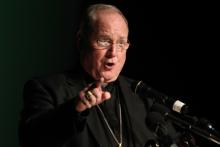nonpartisan

The phenomenon of “creeping normality” allows for significant changes to be deemed acceptable when they occur gradually over time, in relatively unnoticed increments, rather than single steps or dramatic and noticeable instances. The “boiling frog” metaphor, which illustrates the familiar account of an unassuming amphibian that is slowly and successfully cooked to death, reveals not only how such instances can occur, but also how a calculated and protracted alteration (produced by those with power to turn up the heat) can possess disastrous results if not noticed and properly countered (by those left in the water). We need not look far for modern-day examples.
Extreme partisanship has crept into our political normality. As revealed last year by the Pew Research Center, our civic temperature is methodically rising, perhaps beyond the boiling point. The study states:
“The overall share of Americans who express consistently conservative or consistently liberal opinions has doubled over the past two decades from 10% to 21%. [As a result], the center has gotten smaller: 39% of Americans currently take a roughly equal number of liberal and conservative positions, down from 49% in surveys conducted in 1994 and 2004.”

New York Cardinal Timothy Dolan defended his invitation of President Obama to the annual Al Smith Dinner in October, saying he is trying to encourage civility and dialogue amid a bitter battle with the White House over abortion rights and access to contraception.
Dolan has received “stacks of mail protesting the invitation to President Obama,” he wrote in an Aug. 14 blog post. At issue are Obama’s new health care regulations, which require employers to provide insurance plans that cover contraceptive services for women.
Conservatives and the U.S. Conference of Catholic Bishops – of which Dolan is president – have criticized the regulations, which they say abridge the religious freedom and conscience rights of faith-based employers.
But the nonpartisan charity dinner is a time for civility, engagement, and dialogue, Dolan wrote.
“Those who started the dinner 67 years ago believed that you can accomplish a lot more by inviting folks of different political loyalties to an uplifting evening, rather than in closing the door to them,” Dolan wrote.